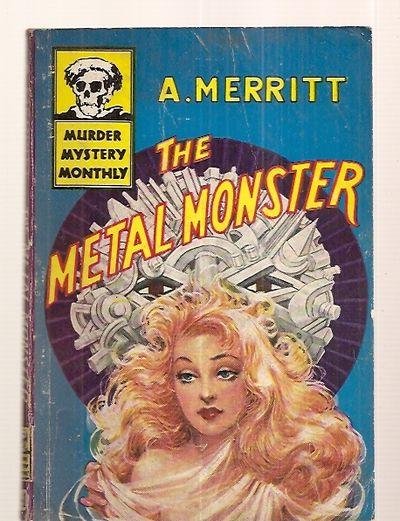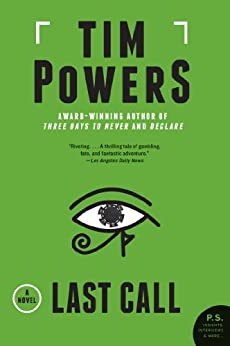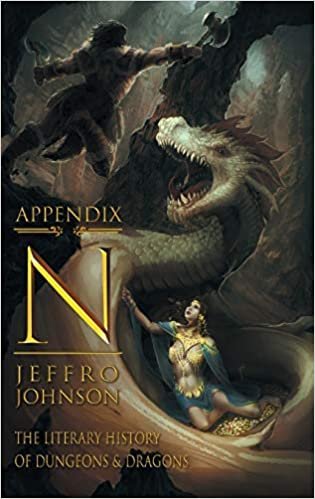Follow-up on a capsule history of English scifi and fantasy

I was looking around my own blog to see if I had ever written anything on Verne while I was prepping my review of Eighty Days Around the World, and I stumbled on this:
A Capsule History of English SciFi and Fantasy
I wrote that post in November of 2010, and my point of view has done a complete 180 since then. I had copied something from John C. Wright’s blog that clearly didn’t faze me then, but now I read it and smack myself in the forehead “That’s completely backwards!” Let me show you.
A reader asks a fascinating question. He speaks of a recent history of science fiction he’d read, and says the editors “laid the blame of ghetto-izing science fiction at John W. Campbell’s feet. I wonder if you have any thoughts on the matter.”
If the editors made the claim that science fiction was popular and mainstream before Campbell, and ghettoized after, I scorn this opinion as not merely ahistorical, but absurd.
The first fathers of science fiction, Wells, Verne, and the now-forgotten Olaf Stabledon, wrote for a general audience and were admired and respected as much (or as little) as any other writers. However, the next generation of science fiction writers, including figures like Edgar Rice Burroughs, A. Merritt, and Robert E. Howard, wrote boy’s adventure fiction. Beloved as these stories are to fans like myself, they were comicbookish, aimed at children, and dealt with their themes in a childish way.
These stories are, in my fanboy opinion, simply great, but simply not great art.
In another place, Wright claims to admire and respect Abraham Merritt, a hugely successful author, but I will submit that calling his work childish doesn’t give me that impression. And I cannot disagree more. Twelve years ago, I did, but then I actually read Merritt, and other authors of the era, and I found they were great! Far better than I had been led to believe. But where does this attitude come from? Thanks to JD Cowan, I have an idea.

JD did an extensive series of blog posts detailing the contents of several histories of science fiction and pulp fiction in the twentieth century, starting with Sam Lundwall’s Science Fiction: An Illustrated History, moving on to Cheap Thrills by Ron Goulart, another volume from Lundwall, Science Fiction: What its all about, and finally, Sam Moskowitz’s The Immortal Storm.
It was the last one, my Sam Moskowitz, who really put it all together for me. Moskowitz was an eye-witness to the events in the 1930s that led to the invention of the very term “science fiction” by a bunch of petulant teenagers who called themselves fans, which I remind you is short for “fanatic”. It was that group of kids who figured out a way to sunder one part of adventure or pulp fiction from all the rest. The reason they did this was because they were the truest of true believers in a philosophy of their own creation known as Michelism. You can read its tenets for yourself in the speech “Mutation or Death”, written by Michel, but delivered by Donald Wollheim.
Read it. And then you will know why they were “fanatics”.
These are the people who defined the term science fiction and gatekept who was in and who was out. And as Moskowitz and Lundwall’s books make clear, this was a constant obsession, as anyone who couldn’t climb to the top of their greasy pole of fan politics or who didn’t believe in their nutty ideas was cast aside.
This is the ultimate source of the idea that pulp era writers were childish and without art. The science fiction fans had grandiose ideas about shaping mankind in their image through fiction, but mankind, specifically their readers, kept resisting. The solution was to assassinate the reputation of popular authors like Merritt, and you have to admit they did a hell of a job. For example, Wright again:
By and large science fiction in America before Campbell was a wasteland of pulp-fiction, tales told without scientific realism, without art, with minimal craft, meant to be read for a thrill and forgotten the next day. Campbell singlehandedly brought in the scientific realism that not only inspired a generation of scientists and engineers, but gave SF its first glimmering dawn of respectability.
I’ll grant the scientific realism, although Moskowitz’s book shows an interesting side of that whole deal which was very much not the ultimate aim of the Michelists. But the other three things Wright says just aren’t true. I know they aren’t because I’ve read the pulp works from that era and there are examples that display incredible craft and art, and deserve to be read for years to come.
You can look back at my reading log and see this process by which I first became aware of this happening at about the time I made the original post.
In 2010 I read an adventure by Jonathan Maberry, a short story collection edited by Neil Gaiman, Scott Pilgrim, a historical fiction novel about Lowell Observatory, Harry Potter 6 and 7, and then a couple of non-fiction war books.

In 2011 I read H. Rider Haggard, Jerry Pournelle and S. M. Stirling’s The Prince, Jerry Pournelle’s Janissaries, Tim Powers’ Last Call, Watership Down, Sherlock Holmes, and even more. I had turned a corner in what I read, but I remember feeling despair that I could only find Jerry Pournelle and Tim Powers that I really liked. Where were all the other great authors? In retrospect, I should have dug harder on those adventure stories outside of science fiction, but I had bought into the idea that only Campbelline scifi was respectable and worth my time because of scientific realism.
I tried a number of contemporary authors who mostly turned out to be mistakes. Rothfuss seemed cool at first, but then I found out how much he hated his fans. Stirling worked with Pournelle, but after a while his lesbian warrior princess obsession got to me. I tried lots of authors for years, but I kept coming back to just Pournelle and Powers.

The first big break was when I read Nick Cole’s Soda Pop Soldier in 2016. I’m still a big fan of Cole’s work. The next was when I started to dig into Appendix N works, thanks to Jeffro and the #BrOSR boys. This was the big break I needed to break open the floodgates that held back all the enjoyable [and yes, even well-written] adventure fiction from the twentieth century and before.
And I’m pissed, because it was the Futurians and their friends and enablers who buried all this great stuff in a pile of lies and calumny. Lies that get repeated by Wright and others who absolutely do not share their politics or worldview, but somehow still manage to believe them about the skill of authors from the past or the quality of their works.
Don’t fall for this anymore. Not only is there a treasure trove of great books from the past, there are new authors who are creating new works in this tradition that never really left us.



Comments ()